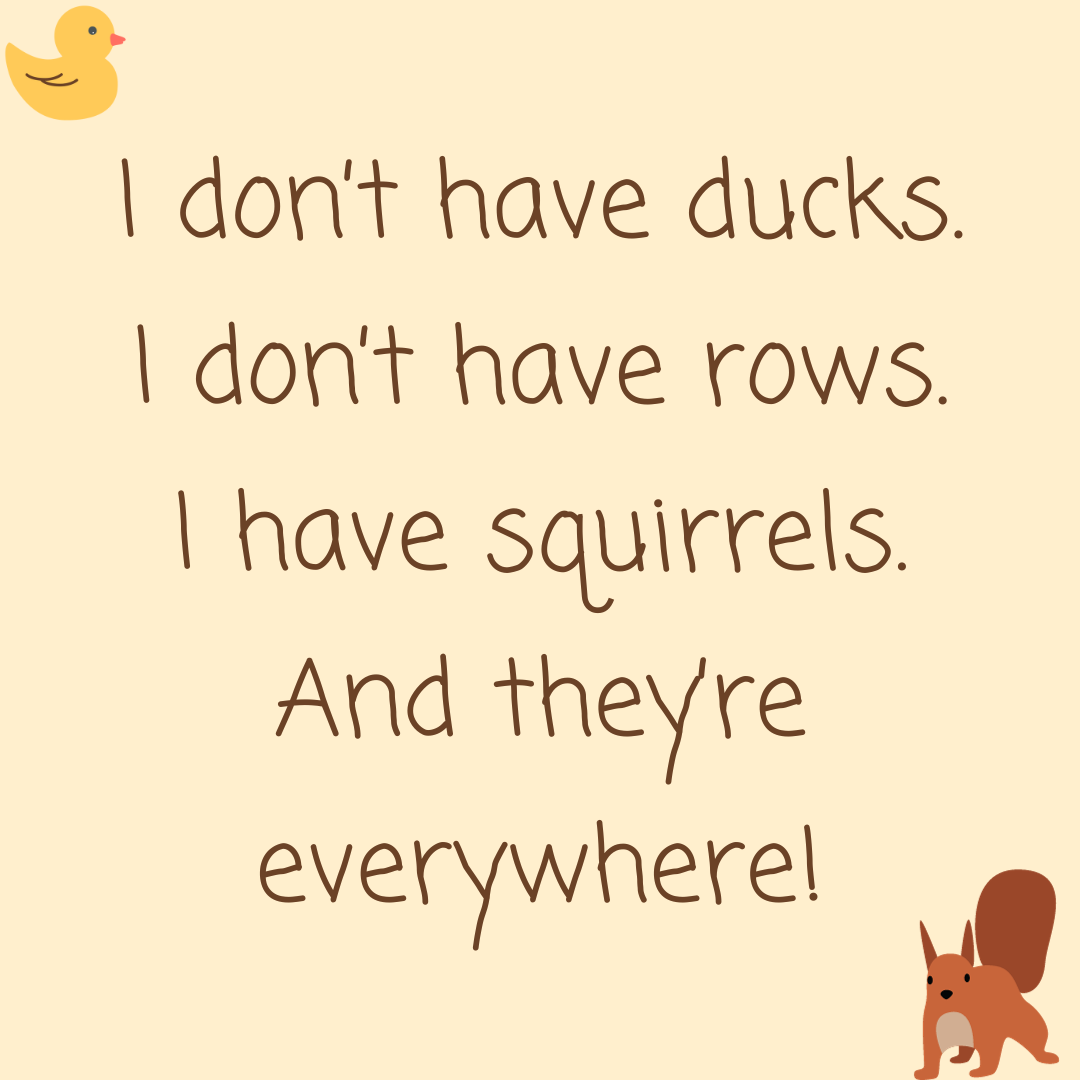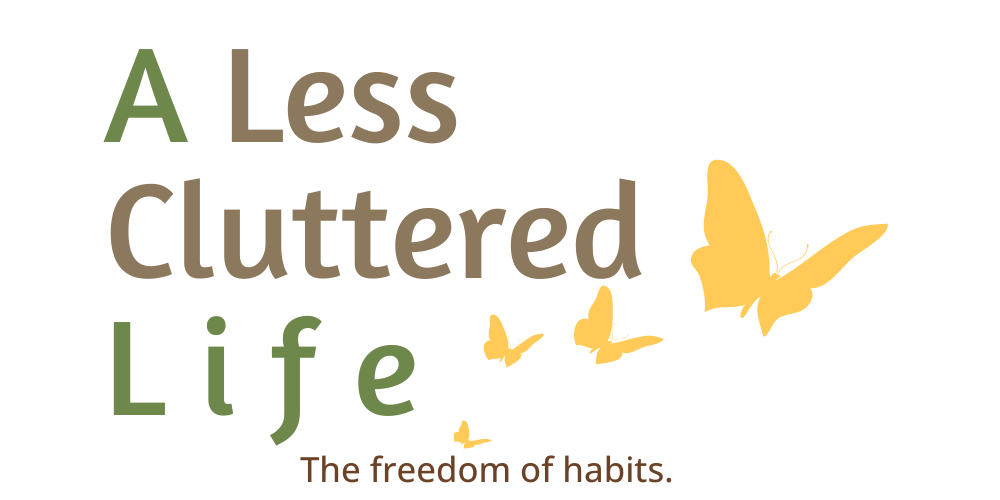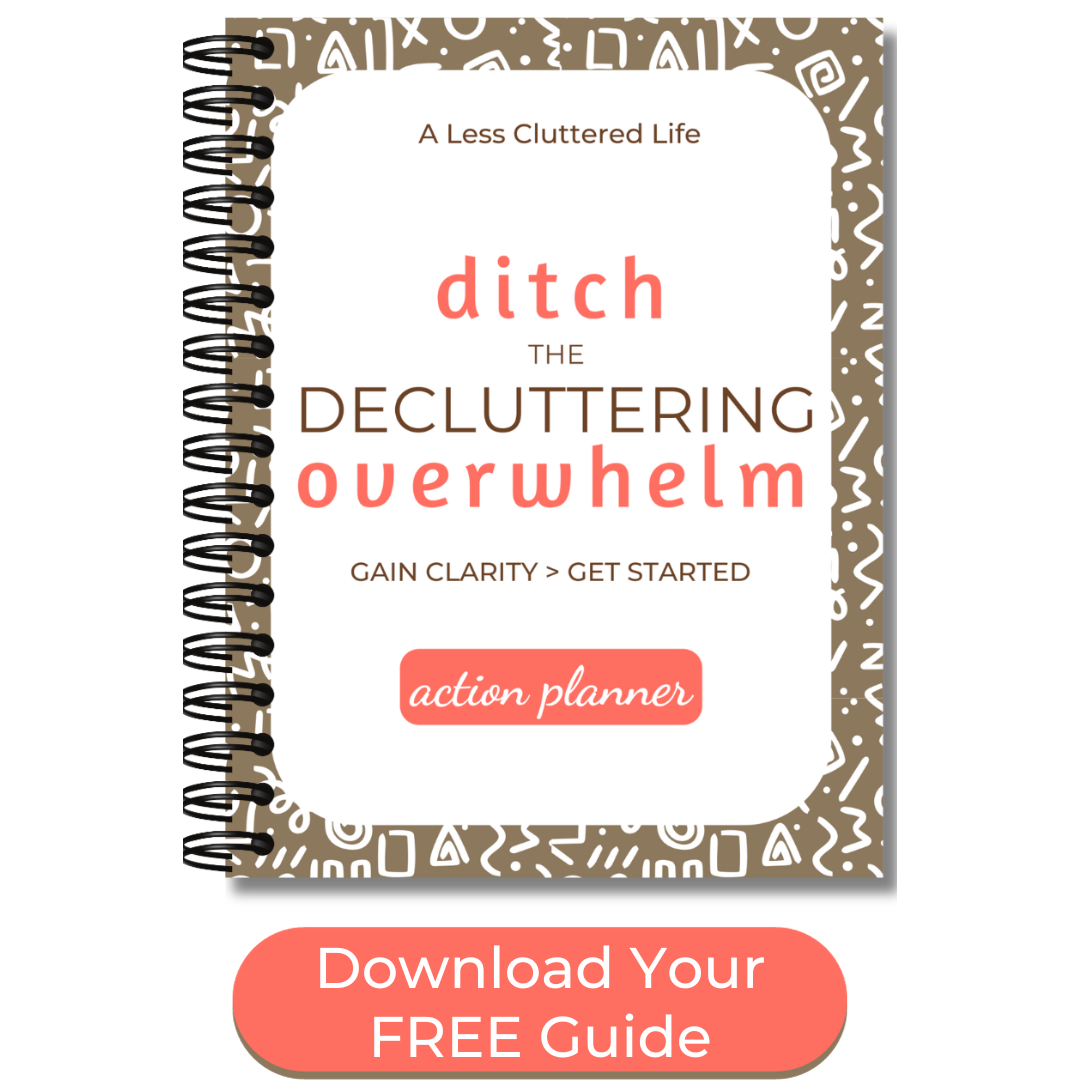|
by Susan McCarthy Whether you are decluttering your own home or sorting through the lifetime accumulation left behind by your parents, you’ll find a lot of things that you’ll want to hold onto because of the perceived worth of the items. If you want to let go of the things that don’t serve you, you need to untangle the practical and emotional pull of possessions. Maybe you aren’t even considering decluttering things. You’re simply looking for something and you’re struggling because of all the stuff in your way. Your first reaction may be frustration, “ugh, why am I holding onto this?” But then you find that you can’t just let go of the thing, even if you don’t use it and haven’t used it for a year or more. Why? Well, you have reasons. Good reasons. Reasons your brain has convinced you are perfectly reasonable. But here’s the thing…your brain may be lying to you. Now even though I’ll be talking about the emotional pull possessions can have, in this blogpost, I’m talking more about the lure of practical items rather than the feelings we have for sentimental ones. Why You Hold onto Things that Don’t Serve Yout’s unlikely that a single reason compels you to hold onto things that you no longer use. And this may be why it can be difficult to question the reasons we have for holding onto things. The variety of thoughts makes our clinging to things seem more reasonable. After all, look at all the different reasons we have for holding onto all these things! It’s these thoughts that we cling to more than the items themselves. Because, if we let go of an item, aren’t we telling ourselves that we weren’t thinking through things in the right way before? We hate being wrong and letting go of something we’ve held onto for a while feels a lot like claiming we were wrong. There’s a thing called the endowment effect which describes how people place a higher value on belongings because they develop an emotional connection to an item. To test this, in a study researchers handed participants a mug. They asked some to place a value on the mug as someone who was going to sell the mug. Others asked to value the mug as a potential buyer. The “sellers” valued the mug at more than twice what “buyers” thought they should pay. To sell something suggests ownership. As the owner of the item, you see it as more valuable because you have a connection to it. When buying an item, you don’t yet own it and so aren’t quite so attached to it. This is why you hold onto things that don’t serve you. Even if you toy with the idea of selling or giving away the item, chances are that you believe the item is worth more than anyone is willing to pay for it. And even if you want to give away the item, you may be miffed when you hear “no, thank you” over and again. You’re frustrated that no one else sees the value of the item. You can see how great this item is…why can’t anyone else. No wonder you’re annoyed…no one wants what you’ve struggled to let go of! What Your Emotional Connection to Possessions Can Look LikeYou may find the idea of having an emotional connection to possessions off-putting. But I’m not talking warm and fuzzy feelings here. (And, as I mentioned, I’m not referring to sentimental items.) If you’re having a difficult time getting rid of any type of item – be it a shirt you’ve never worn, a book you haven’t read, the popcorn maker you used to use all the time (but no longer do), or the extra decorative pillows on your bed – you have your reasons for not easily letting go. One, you get used to seeing items daily (or at least regularly) and this familiarity can make these things seem more important to you. And two, if it’s something you’ve never used because you’re waiting for an occasion special enough to wear that blouse or thoughts sparkling enough to write down in that hardbound journal, the aspirations you have for this item (and yourself) are enough that you can’t casually give away the object without feeling that you’ve also given up the hopes you had for your time with that item. So, you may be remembering how you used to use the item and how it was a part of your life. Or you may be thinking of how you hoped to make use of the object and you feel disappointed that your life and the item never aligned. These thoughts are tied in with emotions. Even if you’re saying, “I’m ready to give away this item,” if you’re also thinking, “but I have to give it to the right person or organization” there’s some emotions in play here. How to Rethink Your Thoughts about Your StuffThere’re a few common thoughts that can entice us into holding onto things that we no longer use. For example, This cost a lot of money. You can feel torn by the idea of giving away or selling something if you spent a lot of money on that thing, but you rarely or never used it. You may struggle because you feel you haven’t received enough value from the item. But if you don’t use it, how will you derive value? Will an item’s worth get used up simply hanging in your closet or sitting on a shelf? Chances are you’ll also struggle to sell or give away something that you’ve used often. Even if you’ve replaced or upgraded the item and you want to pass along the used item, you may be bothered that no one sees the worth in something that has served you well. You’re probably not concerned with hurting the feelings of an inanimate object, but you want to give it to the right person to validate your connection to the object. However, if no one else’s enthusiasm for the object is at the same level as yours, it’s time to step back from your expectations. One way to create some distance? Imagine that a friend is telling you about trying to give away or sell the item. How would you respond to their frustration? What would you say to them? Would you encourage them to hold onto something that no longer serves them? Or would you point out that it’s okay if the item goes to the second or third best possible home, knowing that someone else can use it. It was a gift. Let’s think about the purpose of a gift. Someone want to show you that they were thinking of you. By handing you the gift, they’ve done that. If you make use of the gift, fantastic; however, if you don’t need, use, or even like the item, holding onto it is not the point. The point was the giver showing you that they thought of you. Miss Minimalist, Francine Jay, has said, “It’s the thought – not the thing – that counts.” Sometimes, as the recipient of a gift we forget that. Let’s look this situation from another angle. Do you believe the gift giver wanted you to feel burdened by this item? You can also use this question when looking at the collection of things that your parents left behind. Did they want you to feel burdened by their high school yearbooks and refrigerator magnet collection? When you feel obligated to hold onto something because someone gave it to you, is it really a gift or has it become a burden? Holding onto it is not creating the connection that you have to this person. They expressed their thought; you expressed your thanks. The item has already done its job. You can sell it or give it away to someone who will appreciate it in their own way. Yes, there are people who get huffy at the idea that someone isn’t going to keep what they’ve given them. That is their issue and not yours. They have their own emotional connection to the item and only they can sort out their emotions. You aren’t making them feel bad or angry or disrespected. Our emotions are our own; their feelings are theirs. If they were giving a gift, they may feel a momentary disappointment if they learn you no longer have the item, but it won’t change their feelings toward you. I might use this again someday. I’ll admit this is a tricky one for me. I mean, I know that thing is useful. I’ll just hold onto it a while longer. And then that ‘while longer’ passes and the item is still on the shelf. Unused. Useful is not the same as used. Useful means that something could get used. Used means that it does. Just maybe not by me. And if I hold onto it then it’s no longer useful because I’m preventing it from being used. If we aren’t the perfect person to use the item, we may then want to pass it along to just the right person, because darn it, this thing is useful. It doesn’t matter whether the useful thing is a paperclip or a food processor if we want to see it get used. So how do you disentangle yourself from the lure of ‘someday’? There’re a few ways. One, try to imagine the exact situation in which you would use the item. Then, consider when this situation will arise for you. Is it truly worth holding onto the item until that date? If you’re talking weeks or a month or two, then you know you can use it. However, if you won’t use it for many months, then holding onto the item may become more of a burden. It will take up space in your home. And it will make it more difficult to find the things you want to use. Two, put an expiration date on the item. If you don’t know when and how you’ll use the item but still feel compelled to keep it, consider putting a ‘use by’ date on the item. You could attach a dated label on the item, or you could put it in a box with a date on the box. If you don’t use the item by then, chances are that it isn’t as useful as you think it is. If you want to see it used, pass it along to someone else who can use it. And if you’re thinking, “I bet the moment I get rid of this I’ll find a use for it,” let me say that in my three years as a professional organizer I’ve heard very few people express regret over getting rid of a potentially useful item because they finally found a use for it. Untangling Emotions from the Practical Things that Don’t Serve YouWe hold onto things because we are using them, we once use them, or we hope to use them someday. And chances are all those activities have some emotional pull for us. We remember ladling winter stew from the slow cooker into our family’s bowls and think how we felt spending dinnertime with them.
We recall the thrill of finding a blouse in a yummy fabric and color that we couldn’t wait to wear to a special event…but none has seemed special enough. Looking at that blouse in our closet, our mind whispers to us the hopes and excitement for just the right upcoming event and our heart beats a bit faster wondering about that possibility. Or we’re thrilled to be gifted a new coffeemaker…but what do we do with the one that has been faithfully caffeinating our mornings for the past few years? It could still get used but try as we will, no one is accepting your offer for a free coffeemaker. It feels uncomfortable to casually discard something that served you well. To untangle these emotions, consider:
Remember, the items you own have a familiarity for you. The things seem like part of your life, because in a way they have been. You’ve given a space in your home to your possessions and the endowment effect points out that it’s natural to feel a connection to our belongings. So, if letting go of these things that you don’t use, want, or like feels difficult, you aren’t crazy or a hoarder. But if you know the item is no longer serving you, you now know that you can look at its connection to you and decide that it’s time to pass it on.
0 Comments
Your comment will be posted after it is approved.
Leave a Reply. |
Categories
All
Hi, I'm SusanI'm a former teacher who became a professional organizer (and not because I'm a natural-born neatnik). I live with my husband and fluffy cat on a river in Massachusetts. I crochet, make handmade cards, and love reading young adult novels. Learn more about my decluttering journey here. |
|
Copyright 2024 Susan McCarthy - Susan@ALessClutteredLife.com -
Privacy Policies |
Proudly powered by Weebly

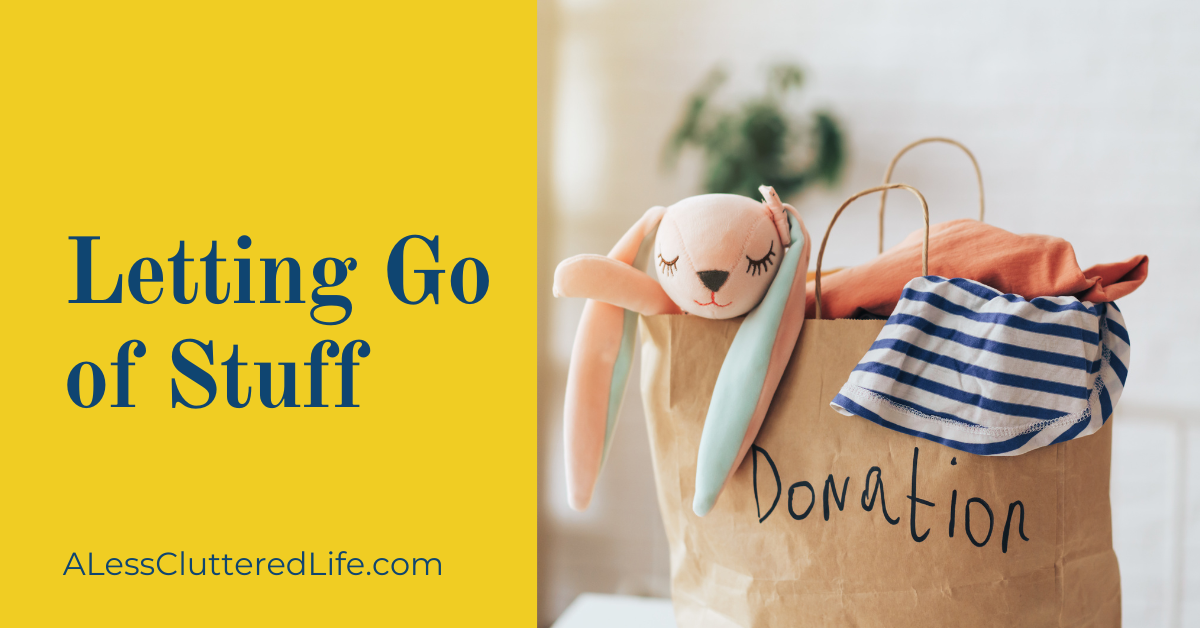
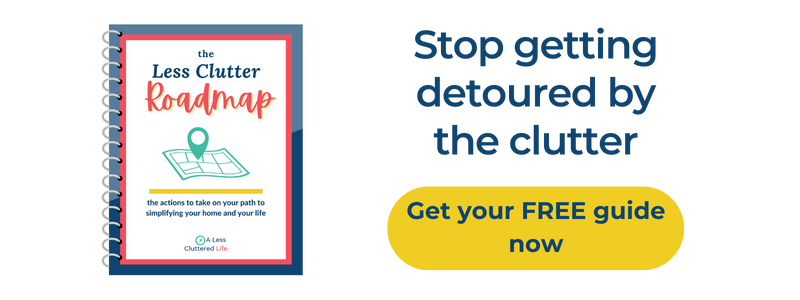
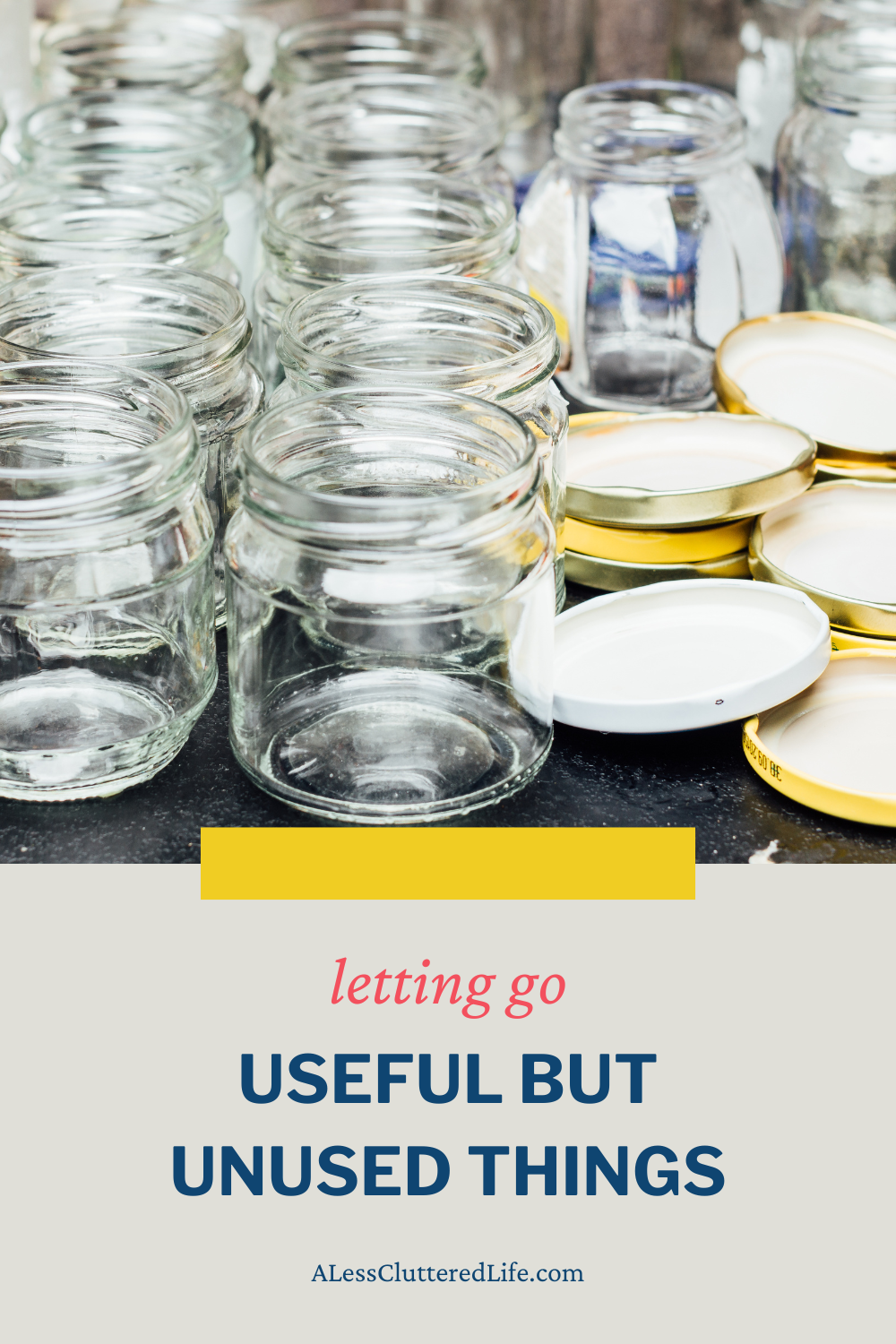
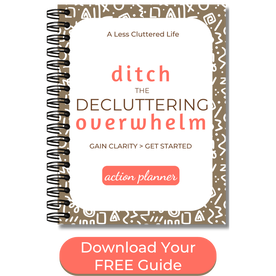

 RSS Feed
RSS Feed
